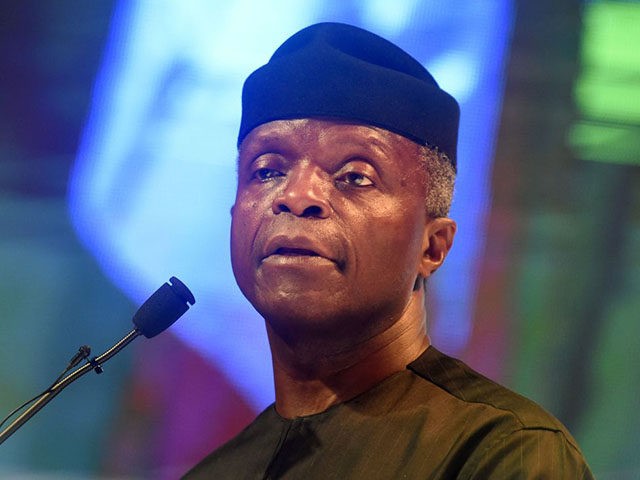Nigerian Vice President Yemi Osinbajo on Tuesday denounced a spate of attacks on Nigerians and other migrants living in South Africa as “unacceptable and unconscionable,” especially given the role Nigerians played in bringing down apartheid.
Nigerian singer Tiwa Savage went even further, pulling out of a music festival in Johannesburg to protest “the barbaric butchering of my people.” Several other Nigerian entertainers and athletes followed suit.
Osinbajo and Savage were referring to a wave of xenophobic violence, vandalism, and looting perpetrated against migrants from other African nations to South Africa, which has long been a magnet for immigration thanks to its relatively prosperous economy.
The BBC reported at least five people have been killed and 189 arrested in the riots, which appear to have been prompted by resentment over migrants from other African nations taking too many jobs in South Africa, as well as making the drug and crime situation worse. Two major inciting incidents were a nationwide strike on Sunday by South African truckers who said foreign drivers were taking their jobs, and the shooting death of a Pretoria taxi driver last week after he confronted foreigners suspected of selling drugs.
The unpleasantness in South Africa extends into cyberspace, as foreigners report receiving text messages and videos threatening them with violence, depicting people killed by mobs, threatening disruptive actions, or spreading hysteria with false reports of crimes. A fake social media story about schools burning and children getting kidnapped caused many parents to keep their children home on Tuesday and Wednesday.
Many migrants to South Africa are from Nigeria, where increasingly angry critics see the response of the South African government as unforgivably lax. After getting slammed for days over his silence, South African President Cyril Ramaphosa spoke out against the violence for the first time in a video released on Tuesday and a public appearance on Wednesday morning.
“As much as they have certain grievances, taking action against people from other nations is not justified and should never be allowed in our beautiful country. South Africa is a home for all,” Ramaphosa said on Wednesday.
“We know that there are quite a number of foreign people who come to our country and we should make sure that we live side by side with them,” he said, adding that South Africans should not “take the law into our own hands and attack those people” when there are “problems of criminality.”
Some other South African officials have described the violence as purely criminal in nature, such as Police Minister General Bheki Cele, who said on Wednesday that “xenophobia is just an excuse to commit criminal acts.”
Cele’s Deputy Minister of Police, Bongani Mkongi, unhelpfully added a complaint that “South Africans have surrendered their own cities to foreign nationals” and insisted it was “not xenophobia to talk truth.”
A wave of reciprocal violence struck South African businesses in Nigeria and Zambia on Tuesday and Wednesday, forcing some major South African retail chains to close their stores. The Nigerian government announced it would boycott the World Economic Forum meeting in Cape Town and may recall its high commissioner from Pretoria to protest the Ramaphosa administration’s handling of the mob attacks.
The presidents of Rwanda and Malawi also withdrew from the WEF conference, while Ethiopia and Kenya issued statements condemning the violence in South Africa. Zambia called off a much-anticipated soccer match with South Africa on Wednesday to protest the xenophobic violence. The African Union on Wednesday condemned the violence and vandalism, calling for further South African government action to restore order.
It is not actually clear if any of the people injured or killed in the South African riots are Nigerian. Tiwa Savage amended her comment about the “barbaric butchering of my people” to indicate she regarded all Africans as “her people.”

COMMENTS
Please let us know if you're having issues with commenting.